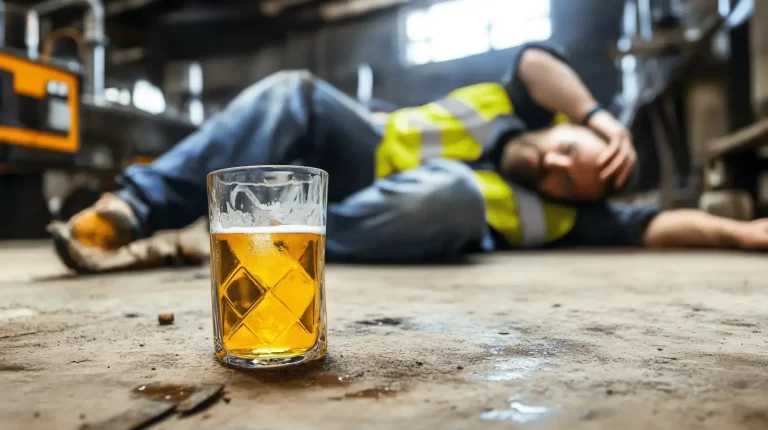Speakers: Michael Levites & Matthew Sullivan
Michael Levites: Good day, everybody. It’s Michael Levites from JurisQ Legal Network, where we answer your frequently asked questions on law. Today, we’re back with Matthew Sullivan, a partner in the Law Offices of Gregory Spektor and Associates, a personal injury firm. Matthew, we’re so pleased to have you back with us. Thank you.
Matthew Sullivan: Thank you for having me. It’s always a pleasure.
Michael Levites: Thank you. And Matthew, we talked in our previous sessions about Scaffold Law where there’s really no defense against the worker falling from scaffolding, or if something fell on the worker from some height, the site owner, the contractor, will most likely be liable for the injuries. And I want to follow up with an interesting scenario, scaffold law, or any other construction accident injury. It sometimes happens when a worker is found to be either intoxicated or maybe under the influence of drugs at work, and an injury occurs. What kind of scenarios can there be? Can the injured intoxicated workers still get compensation for their injuries? Or maybe it’s going to be less compensation? How does that all play out?
Matthew Sullivan: Although we don’t encourage it, the injured intoxicated worker can absolutely be compensated for their injuries. And that, again, is governed by the principles we discussed earlier with the New York State Scaffold Law And Labor Law 240. Looking at a case that involves those facts where someone falls from a height, for example, I had experienced a case where a worker fell from an ID. He was carrying a plank of wood across an I-beam. Gosh, it had to be about 20, approximately 20 feet high. The wind came and blew him and the plank off of the I-beam, and he fell. It’s really a miracle that he survived. When the ambulance arrived, someone in the ambulance saw symptoms consistent with cocaine use and administered Narcan at the scene and eventually treated him for cocaine in his blood. Michael, we discussed earlier that there are only two defenses to Labor Law 240, The New York State Scaffold, sole proximate cause, and the Recalcitrant Worker. So there was this bad fact in the middle of the case that the injured worker had cocaine in his blood.
Michael Levites: And I’m sure defense, the insurance company, made a big deal out of it, right?
Matthew Sullivan: They absolutely do. Unfortunately for them. Fortunately, for the injured worker, they couldn’t connect that to the accident being 100% his fault. Say this worker was exposed to an unprotected fall area of approximately 20. The wind blew him off. He wasn’t provided with a proper harness of copper or another safety device. And so it was found that that was a violation of Labor Law 240. Once they found that there was a violation. From a liability perspective, the defense couldn’t really talk about the presence of cocaine anymore.
Michael Levites: Interesting.
Matthew Sullivan: If we can track Michael, with a statute Labor Law 241-6, where all of this is a defense, then it gets a little trickier for that intoxicated worker, then it’s an easier argument to say, well, there was cocaine in his blood. Did that contribute, perhaps, to how the accident happened? Did that contribute to how this individual used a particular top tool under that portion of the statute? Or did that contribute if he tripped to his imbalance? Then you’re talking about a different scenario. But going back to your original question, can an intoxicated worker recover from their injuries? The answer is certainly if there’s a violation of Labor Law 240. And potentially, if you’ve got to look under the other statues of the New York State Labor Law.
Michael Levites: Let me ask you, but let’s say the court finds, yes, the worker deserves compensation. But the fact he or she was drunk is some kind of factor to consider? Is it possible the court would have, or the jury would award that person less than 100% of a verdict of the award and say you know what, you’re responsible 20% on your injuries because you did show off to work drunk?
Matthew Sullivan: Under the New York State Scaffold Law, remember comparative fault isn’t a defense. In that scenario, the facts you described wouldn’t play out that way. But answering your question, if we were to look under different portions of the New York state labor law, where you could consider comparative fault, then absolutely, a jury very well could determine that a workers intoxication amounted to, let’s say, a 25% offset of comparative fault. And that’s exactly how it works. If the jury said the worker was 25% at fault and then awarded him or her a verdict of a million dollars, that number would automatically be reduced by 25%.
Michael Levites: Yeah, interesting. Okay, Matthew, the lesson here is, even if you were intoxicated at work, and you got to enjoy it, you still have a very big chance of recovery. So go to your attorney. But don’t go to your attorney drunk.
Matthew Sullivan: Haha! Thank you.
Michael Levites: We want an informed, educated client who has full control of his or her senses. So that being said, the phone number of Matthew Sullivan, who is a premier construction excellence attorney, and a partner in the law office of Gregory Spektor & Associates, a personal injury firm, the phone numbers at the bottom of the screen. If you were injured, for any injury or incidents, at the construction sites at a worksite. Don’t hesitate. Call the phone number, and you’re going to get a free consultation. And I’m sure that attorneys will be able to tell you the chances of recovery from your injury. Matthew thanks so much. It was a pleasure having you back, and I hope to have you soon on more sessions about personal injury law and construction accidents. Thank you, everybody, for tuning in. Until next time, have a great day.
Matthew Sullivan: Thank you.



